 W
WUmeko Ando was an Ainu singer and mukkuri player. Her participation Oki Kano's second album Hankapuy, helped her gain recognition. She recorded several albums, including her solo debut album, Ihunke, produced by Oki in 2001, that was praised by critics and artists alike, and many music publications in Japan declared it the best world music album of the year. It was followed by her second studio album, Upopo Sanke, in 2003, with Chikar Studio, which gained worldwide attention.
 W
WYukio Aoshima was a Japanese politician who served as Governor of Tokyo from 1995 to 1999. He is also well known as a TV actor, novelist, film director, screenwriter and songwriter.
 W
WMaki Asakawa was a Japanese jazz and blues singer, lyricist and composer. She was an important voice of the Japanese urban counterculture.
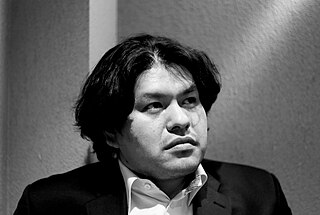 W
WKenji Eno was a Japanese musician and video game designer. He gained a reputation as a maverick during the mid-1990s for creating unorthodox games like Real Sound and is perhaps best remembered today for his rebellious marketing techniques. Outside of his native home land he was best known for his survival horror video games, the D series. Apart from creating video games, Eno was also a well-regarded electronic musician and he created the scores for several of his games. During his life, Eno founded the video game development companies: EIM and From Yellow to Orange. He also worked in a variety of fields apart from video games and music including the automotive, cellphone, tobacco, and hotel industries. Eno died on February 20, 2013, due to heart failure brought on by hypertension.
 W
WYoshie Fujiwara was a Japanese tenor singer.
 W
WAkiko Futaba was a Japanese popular music (ryūkōka) singer. At of the end of World War II, she was one of the most popular female singers in Japan, competing with Hamako Watanabe and Noriko Awaya. In addition, she took part in the Kōhaku Uta Gassen, one of Japan's most famous annual musical television shows, ten times.
 W
WRei Harakami was a Japanese record producer from Hiroshima. He was based in Kyoto. He was one half of the duo Yanokami along with Akiko Yano.
 W
WRyōichi Hattori was a Japanese pop and jazz composer. Katsuhisa Hattori is his son. He had a great influence on Japanese pop and was awarded the People's Honor Award. Japanese jazz was downtrodden during World War II, but he created a jazz boom after the war. He composed many songs for various artists such as Noriko Awaya, Shizuko Kasagi, Ichimaru and Ichirō Fujiyama. He also composed Li Xianglan's song "Suzhou Nocturne", which created an embarrassing controversy over half a century though it was not a militaristic song.
 W
WMunetaka Higuchi was a Japanese musician and record producer. He is best known as the original drummer of the heavy metal band Loudness, but first rose to prominence as a member of Lazy in the 1970s.
 W
WYoshiaki Hoshi , born in Wakayanagi, Miyagi, Japan, was a Japanese musician best known for his band Himekami.
 W
WToshi Ichiyanagi is a Japanese composer and pianist.
 W
WHiroyuki Iwaki AO was a Japanese conductor and percussionist.
 W
WKaori Kawamura was a rock and pop singer in Japan, born in Moscow, Soviet Union.
 W
WKōhan Kawauchi , also known as Yasunori Kawauchi, was a Japanese Screenwriter who created various tokusatsu series, including the first, Moonlight Mask, in 1958. He was originally from Hakodate, Hokkaido.
 W
WMasabumi Kikuchi was a Japanese jazz pianist and composer known for his eclectic music that ranges from vanguard classical to fusion and digital music. He worked with many diverse musicians, including Lionel Hampton, Sonny Rollins, Woody Herman, Mal Waldron, Joe Henderson, McCoy Tyner, Gil Evans, Elvin Jones, Miles Davis, Gary Peacock, Paul Motian, Billy Harper and Hannibal Peterson.
 W
WIwamoto Mari was a Japanese violinist.
 W
WShizuka Miura was a Japanese ball-jointed doll maker, singer, songwriter, and guitarist. She became recognized in Japan for her doll work. Worldwide, Shizuka is best known for having been the founder and front woman of the rock band Shizuka.
 W
WTadatoshi Miyagawa is a Japanese composer, a Gagaku performer and researcher, as well as a music arranger. His former last and first name was Konoe Toshitake (近衛俊健).
 W
WJun Seba , better known by his stage name Nujabes , was a Japanese record producer, audio engineer, DJ, composer and arranger who produced atmospheric instrumental mixes sampling from hip hop and jazz and released three solo studio albums: Metaphorical Music (2003), Modal Soul (2005) and Spiritual State. Seba was the founder of the independent label Hydeout Productions and released two collection compilations: Hydeout Productions 1st Collection (2003) and 2nd Collection (2007). Additionally, Seba collaborated on the soundtrack for Shinichirō Watanabe's anime series Samurai Champloo in 2004.
 W
WEiichi Ohtaki was a Japanese musician, songwriter and record producer. He first became known as a member of the rock band Happy End, but was better known for his solo work which began in 1972. In 2003, Ohtaki was ranked by HMV Japan at number 9 on their list of the 100 most important Japanese pop acts. Patrick Macias referred to Ohtaki as Phil Spector, Brian Wilson, George Martin and Joe Meek "synthesized into a single human being," and called his work "an encyclopedia of everything that was great about pop music in the 20th century."
 W
WRitsuko Okazaki was a Japanese singer-songwriter born on Hashima Island, Nagasaki Prefecture. She first made her professional debut with the single, Kanashii Jiyū / Koi ga, Kiete Yuku. She is also known as the Shelby Flint of Japan.
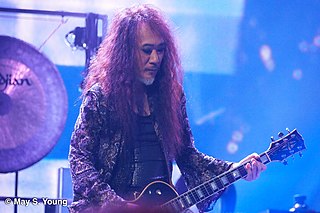 W
WTomoaki Ishizuka , known exclusively by his stage name Pata, is a Japanese musician. He is the rhythm guitarist for the visual kei rock band X Japan. He joined the band in 1987, stayed with them until their dissolution in 1997 and rejoined when the band started a comeback in 2007.
 W
WHideo Saito was a Japanese cellist, conductor, and music lecturer.
 W
WFrankie Sakai was a Japanese comedian, actor, and musician.
 W
WYasuo Saitō , also known by the stage name Yakkun Sakurazuka , was a Japanese comedian, singer, and voice actor.
 W
WMegumi Satsu was an eccentric French-Japanese singer.
 W
WChiyoko Shimakura was an enka singer and TV presenter in Japan. She was considered "the Goddess of Enka".
 W
WTarō Shōji was a popular Japanese ryūkōka singer.
 W
WNejiko Suwa (諏訪根自子) was a Japanese violinist who first rose to prominence as a child prodigy during the inter-war period, and was most active prior to the 1960s. She is most noted today for having been presented with what was claimed to be a Stradivarius by Joseph Goebbels on 22 February 1943 and the controversy surrounding the gift.
 W
WMasaaki Suzuki is a Japanese organist, harpsichordist and conductor, and the founder and musical director of the Bach Collegium Japan. With this ensemble he is recording the complete choral works of Johann Sebastian Bach for the Swedish label BIS Records, for which he is also recording Bach's concertos, orchestral suites, and solo works for harpsichord and organ. He is also an artist-in-residence at Yale University and the principal guest conductor of its Schola Cantorum, and has conducted orchestras and choruses around the world.
 W
WYoshio Tabata was a Japanese ryūkōka and enka singer, songwriter, and electric guitarist. His debut song "Shima no Funauta" was released in 1939. Along with enka-shi Haruo Oka's 1939 debut, his debut had a big impact on Japanese popular music because Japanese popular ryūkōka music of that time was mainly sung by classical music singers such as Ichiro Fujiyama and Noriko Awaya. He was born in Matsusaka, Mie prefecture, Japan.
 W
WShoji Tabuchi is a Japanese-American country music fiddler and singer who currently performs at his theater, the Shoji Tabuchi Theatre, in Branson, Missouri.
 W
WTaiji Sawada , also known mononymously as Taiji, was a Japanese musician and songwriter. He is best known as the former bassist of the rock band X. X rose to prominence in the late 1980s and early 1990s, credited as founders of the Japanese visual kei movement. After leaving X in January 1992, Taiji went on to work with many other bands, including Loudness and D.T.R.
 W
WTadao Takashima was a Japanese actor and jazz musician. He appeared in more than 100 films, including the Toho productions King Kong vs. Godzilla, Atragon, and Frankenstein Conquers the World. He also performed in stage musicals such as My Fair Lady and appeared in several television shows.
 W
WMasayuki 'Jojo' Takayanagi was a Japanese jazz / free improvisation / noise musician. He was active in the Japanese jazz scene from the late 1950s. In the 1960s he formed New Directions, which recorded several albums throughout the 1970s. He also recorded several albums with saxophonist Kaoru Abe, including Kaitai Teki Kohkan, Gradually Projection and Mass Projection.
 W
WStomu Takeishi is a Japanese jazz bass player. He generally plays fretless five-string electric bass guitar, as well as a Klein five-string acoustic bass guitar. He often uses looping or other electronic techniques to enhance the sound of his instrument.
 W
WYoshiko Tanaka was a Japanese actress. She was also famous as a member of the pop group Candies. While a member of Candies, Tanaka was known by the nickname "Sue" . Still at the height of its popularity, the group disbanded in 1978. Tanaka was also the sister-in-law of the well-known actress Masako Natsume.
 W
WShūji Terayama was an Japanese avant-garde poet, dramatist, writer, film director, and photographer. His works range from radio drama, experimental television, underground (Angura) theatre, countercultural essays, to Japanese New Wave and "expanded" cinema.
 W
WKumoemon Tochuken was a popular rōkyoku recitalist in Meiji Japan. His immense popularity helped rōkyoku break into the mainstream. At his height, he performed Chūshingura productions to sell-out crowds at some of the biggest theatres in Tokyo and Osaka. These performances also roused nationalist sentiment during Russo-Japanese War.
 W
WHideaki Tokunaga is a Japanese pop singer-songwriter and actor.
 W
WMiyoshi Umeki was a Japanese-American singer and actress. Umeki was a Tony Award and Golden Globe nominated actress and the first Asian woman to win an Academy Award for acting.
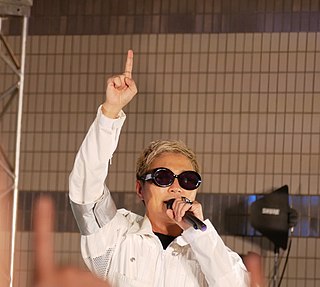 W
WVerbal is a Japanese hip hop recording artist, music video director and record producer who debuted in 1998 as a member of the hip hop group M-Flo. He is a third generation Zainichi Korean and a notable representative of Zainichi Korean music in Japan.
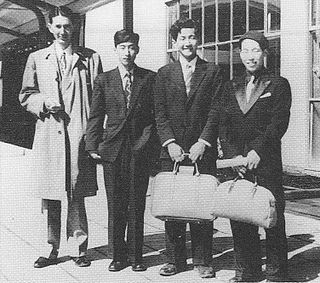 W
WAkeo Watanabe was a Japanese symphonic conductor, known for his recordings of the works of Jean Sibelius.
 W
WKazuki Watanabe , known by his stage name Kazuki (華月), was a Japanese musician known as guitarist and lead songwriter of the visual kei rock band Raphael. The group became quite popular, with all their releases entering the top 40 of the Oricon chart, before disbanding after Kazuki died at the age of 19.
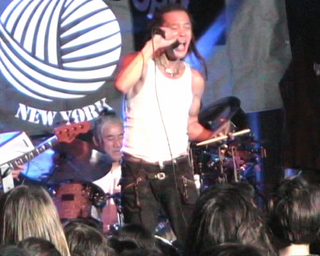 W
WAkira Yamanaka , better known as Joe Yamanaka (ジョー山中), was a Japanese singer and actor. He is known for both his work with Flower Travellin' Band and as a solo musician; singing at a vocal range of three octaves. As an actor, he appeared in many television shows and movies, such as Takashi Miike's Deadly Outlaw: Rekka and the 1989 version of Zatoichi.
 W
WHiroshi Yoshimura was a Japanese musician and composer. He is considered a pioneer of ambient music in Japan. His music lies mostly in the minimalist genre of kankyō ongaku, or environment music—soft electronic melodies infused with the sounds of nature: babbling brooks, steady rain, and morning birds.
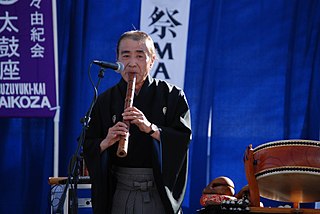 W
WMasakazu Yoshizawa was a Japanese American flutist and musician, known for his mastery of the bamboo flute, specifically the shakuhachi. Yoshizawa also mastered several other traditional Japanese flutes, in addition to other Japanese and Western musical instruments. He was also considered a scholar of ancient and modern Japanese traditional music. Yoshizawa's work and music were featured in a number of major Hollywood studio films and soundtracks, including The Joy Luck Club and Memoirs of a Geisha.
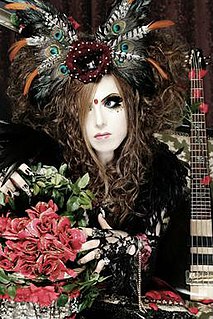 W
WJasmine You was a Japanese musician, best known as original bassist of the symphonic metal band Versailles. Jasmine You, then known as Yuu, entered the visual kei music scene in 1998 after joining Jakura, who managed to become somewhat successful before disbanding in 2003. In 2006 he was invited by his long-time friend Hizaki to join his solo project. Soon after he also took part in the theatrical rock show Node of Scherzo, with Hizaki, Kamijo, Juka and Kaya. In 2007 he joined Versailles and stayed with them until his illness and death in 2009.